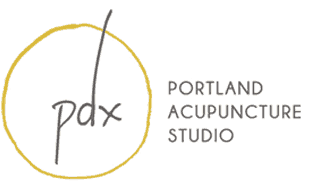Not that long ago, many people felt sheepish about telling their doctor they were seeing an acupuncturist. In certain cases, they might have expected to be dismissed or even judged for this out-of-the-box choice. I don’t think most doctors were actually against acupuncture, as much as unfamiliar with it. Over the past 20 years, with more quality research supporting the use of acupuncture for conditions like chronic pain, post-operative pain and nausea, mood disorders, and infertility, many physicians and other conventional medical providers have become acquainted with the benefits of acupuncture. Hearing patients talk about how acupuncture helps them has gone a long way to bridge the gap as well. As a result of these inroads, there is more openness to acupuncture on the part of many conventional providers. More and more of my patients tell me that their doctor is happy to hear that they are having acupuncture treatments, or that their doctor initiated a discussion about acupuncture as an option in their treatment plan. I am, of course, thrilled to hear this, since I believe that we are practicing the best medicine when complementary and conventional providers work together. I have consistently seen that patients get the best outcomes when they use a combination of conventional and complementary care options.
My vision of better Health Care for you
The 2.0 version that I’m so excited to be a part of is a model where providers work collaboratively, in the same space, using shared resources. This approach takes it seismically further than patients simply accessing both complementary and conventional care on their own. It means that the care is coordinated by all providers together, so the patient truly gets integrative care in real time. This happens accurately and seamlessly, without providers playing a game of “telephone” about patients, or worse, providers never communicating with each other at all about shared patients.
A Case for Acupuncturists and MD’s Working Together
Earlier this year, a woman named Monique was referred to me from within my clinic, Synergy Women’s Health Care. She was exhausted and desperate for help. She was also sleeping poorly, which was making the fatigue impossibly bad. She just didn’t feel like she was living her life anymore.
I talked to Monique for an hour to see what could be causing this problem. It turns out that since she had last seen her MD, she had been having daily menstrual bleeding. It hadn’t occurred to her that this was abnormal – she thought “it just happened” during peri-menopause, and hadn’t called her doctor about it. I see this often, when patients don’t realize that they should communicate something to their physicians. I make sure to catch these instances, and counsel the patient to consult with their physician ASAP. In this case, I suggested to Monique that she was probably anemic from all the bleeding, and got her written permission to discuss this with her MD. This consult was accomplished not by a drawn-out process of phone tag, but by my walking down the hall to discuss my theory with her doctor, and asking about testing for anemia at our clinic’s lab right then and there. The results came back quickly since it was done in-house, and sure enough, she was severely anemic. I humbly told Monique and her doc that as good as Chinese herbs are at supporting blood, she needed more immediate help, so her MD gave her iron injections. Meanwhile, her MD and I worked together on the daily menstrual bleeding – I with Chinese herbs and acupuncture, and her MD with a temporary low dose of Progesterone to curb the bleeding, which also helped her sleep. Within 2 months she was feeling better: The daily bleeding stopped, she was sleeping well and enjoying her life again. She continues to get acupuncture regularly to help her overall hormone balance, energy and sleep, and I check in with her doctor regularly to discuss how she’s doing, making sure she conveys significant changes to her MD directly. We all – the patient, the physician, and myself – act as an ongoing cohesive team.
I have seen other patients benefit from this integrative model in similar ways. I do feel that this is the future of medicine – patients getting the best of both worlds, and getting better faster and more completely as a result. We truly are better than the sum of our parts when we practice this way. I want you, too, to benefit from this truly holistic approach, and I want to help you find it.
5 questions to ask providers about integrative health care:
- Do you have MDs, Naturopaths, and Acupuncturists, and other allied health providers under the same roof? If not, do you refer out regularly to those other providers?
- With what method and frequency do your providers communicate with each other (or with outside providers) about shared patients?
- Do the providers truly coordinate care with other providers, in-house or out? Do they manage cases as an integrative team, or do they just sign off that “It’s ok to get acupuncture,” or “Go check with your doctor about that,” without communicating further, or actively working together on your care?
- How open are the providers to supporting treatment methods from other disciplines? Is your MD OK with you taking Chinese herbs? Will your acupuncturist disapprove of you taking pharmaceuticals?
- What tools do you have to actively participate as a member of the team with your providers? How do you get your questions answered about integrating your care, since it might be a new approach for you?
High quality, collaborative health care is not a dream, it’s a reality. It is available in more settings than you may realize. My hope for you is that you get the best care out there, using all of the traditional and modern resources available. Keep looking until you find it. I am happy to help if you have any questions as you look – just get in touch.
Be well,
Lisa Tongel, L.Ac.
Established patients can schedule online, patients who haven’t seen us at Kwan Yin Healing Center call (503) 701-8766, or email us to schedule your appointment.
Photo by PhotoMIX Ltd. from Pexels





